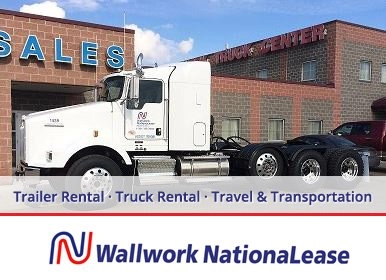Renting a Semi-Trailer: Everything You Need to Know Before You Hit the Road
March 21, 2023 - 14:09:24 зm

In the logistics and transportation industry, semi-trailers are invaluable assets, facilitating the transportation of goods across various distances. Opting to rent a semi-trailer can be a cost-effective solution for many businesses, particularly those with fluctuating demand or limited upfront capital. However, before you sign on the dotted line, it's essential to understand the rental process, associated costs, and your responsibilities. Here's everything you need to know before renting a semi-trailer.
Why Rent a Semi-Trailer?
Renting a semi-trailer offers numerous benefits, primarily flexibility and cost-efficiency. It allows companies to respond quickly to changing demands without making a substantial upfront investment. It also provides the opportunity to try out different types of trailers and find the one that best fits your business needs. As Casey, a General Manager in Fargo, North Dakota, shared, "Renting allows us to accommodate different cargo types without committing to a specific trailer type."
Types of Semi-Trailers Available for Rent
There are various types of semi-trailers available for rent, each designed for specific purposes. Flatbed trailers are versatile, making them suitable for transporting a wide range of goods. Refrigerated, or 'reefer,' trailers are used for goods that need temperature control, while lowboy trailers are perfect for hauling heavy equipment. Understanding your needs will help you select the appropriate trailer.
What to Consider Before Renting a Semi-Trailer
Several factors should be considered before renting a semi-trailer. Firstly, assess your needs. What type of cargo will you be transporting? What's the required capacity? It's also crucial to consider the costs. Rental fees can vary depending on the trailer type, rental period, and other factors. Always ensure you understand the terms of the rental agreement before committing. As Sonya, a Rental & NationaLease Manager from Bismarck, North Dakota, suggests, "Read the fine print. Understand your responsibilities regarding maintenance, damage, and insurance."
The Process of Renting a Semi-Trailer
The process of renting a semi-trailer is relatively straightforward. First, identify a reputable rental company. Make inquiries about availability, costs, and terms. Once you've chosen a trailer, you'll need to provide the necessary documentation, including a valid driver's license and proof of insurance. Upon picking up the semi-trailer, inspect it thoroughly for any existing damage to avoid future disputes. The same goes for when you return it.
Insurance and Liability Considerations
Insurance is a crucial aspect of renting a semi-trailer. Typically, the renter is responsible for any damage to the trailer during the rental period. Therefore, having appropriate insurance coverage is paramount. It's also essential to understand what your insurance covers and what it doesn't. Some policies may not cover certain types of damage or liability.
Maintaining the Semi-Trailer During the Rental Period
During the rental period, it's your responsibility to maintain the semi-trailer. This includes regular checks and servicing to ensure it remains in good working condition. Any repairs needed due to normal wear and tear are typically covered by the rental company, but any damage due to negligence will likely be your responsibility. Andy, a Service Manager from Minot, North Dakota, advises, "Treat the trailer as if it were your own. Regular checks and maintenance can prevent bigger issues down the line."
Conclusion
Renting a semi-trailer can be a cost-effective and flexible solution for many businesses. However, it's not a decision to be taken lightly. By understanding the types of trailers, rental process, costs, and responsibilities, you can ensure a smooth rental experience. And remember, choosing a reputable rental company can make a world of difference. Happy hauling!

